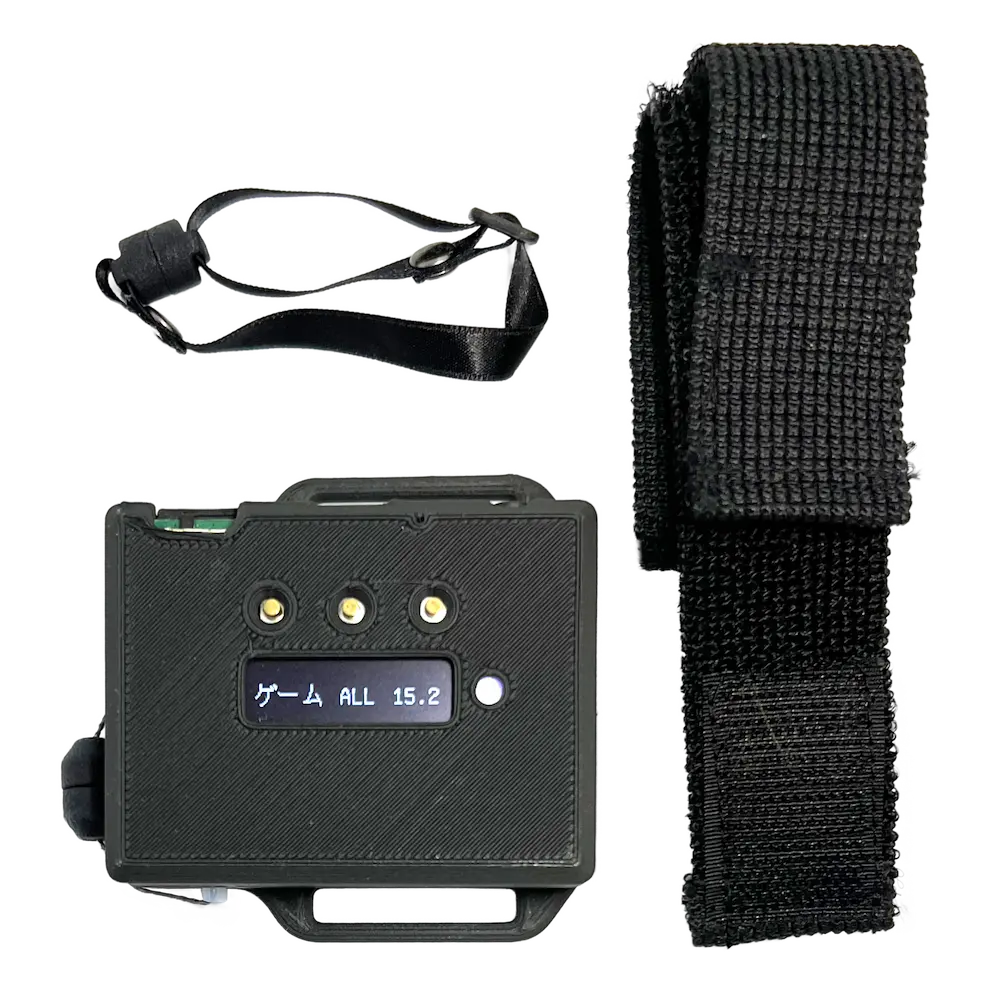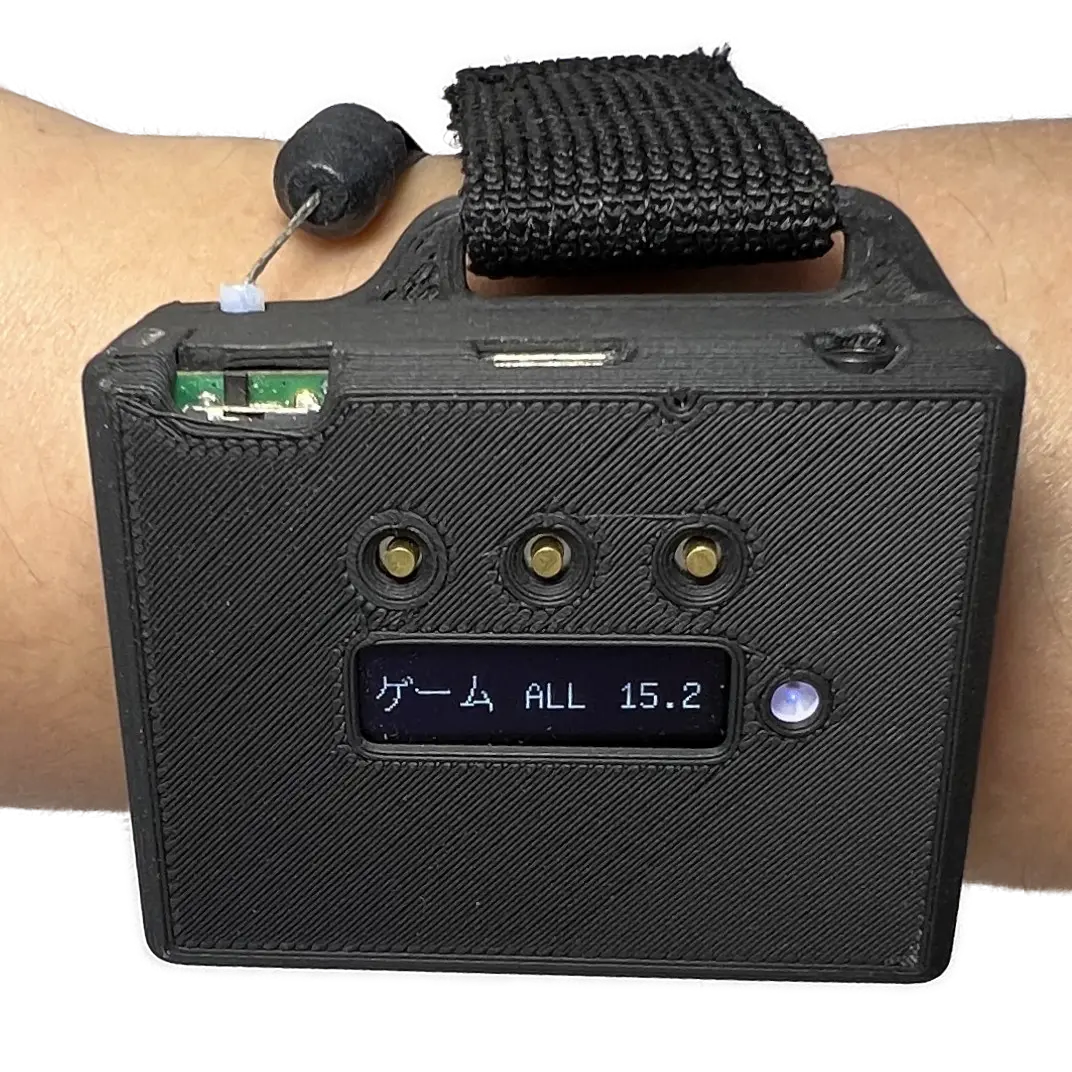Band Wireless


The Band Wireless model is designed to be used in facilities for reliable danger notification and haptic feedback in theme parks. It can be worn anywhere on the body, including the arms, legs, and torso. It incorporates the ESP32 wireless module and can communicate with Wi-Fi and other major wireless systems. The internal mechanism is almost identical to the Band model, with a built-in battery and wired input support, but audio output is omitted.
This product requires programming and is intended for developers. It is necessary to write firmware and voice data to Hapbeat using VSCode. If you need low latency (a few milliseconds) communication, we recommend using ESP-NOW, but you will need a separate transmitter using an ESP32 microcontroller (e.g., M5Stack).
Please contact us for trial, purchase, and more information.
Reference price: 200USD
Reference price list for belt + belt unit
Type
Price
Belt length
Belt length
Arm
15USD
approx. 14-30 cm
approx. 85 cm
Legs
16USD
approx. 35-100 cm
approx. 45 cm
Body
17USD
approx. 43-134 cm
approx. 18 cm
This value includes the amount of rubber extension. In addition, the enclosure's width, 5.4 cm, is added.
In addition to this value, the width of the enclosure (4.4 cm) and the length of the thread ejected from the enclosure (2-3 cm per side) are also added.
The reference price is for the hardware only. We will support the introduction of general-purpose firmware provided by our company, but individual development costs are not included. We also offer system development services, so please get in touch with us if you are considering introducing the system to your facility.
Development flow
The basic flow of the system is that Hapbeat stores the sound data, and the external transmitter sends text commands (e.g., '0,0,0,0,0,0,50,50,0') for playback via Wi-Fi, ESP-NOW, etc. Implementation is quite easy if the source code of a system is editable. For example, in the case of Unity, the developer can realize haptic feedback by adding simple code that sends text messages to a transmitter via USB serial, just like adding sound effects.
Technical Specifications
Wireless Module
ESP32-S3-MINI-1-N8
Standby time
Approx. 7 hours *1
Operating time
Approx. 30-60 min. *2
Charging method
USB-C 5 W (5V/1A, approx. 1 hour until fully charged)
Battery used
LiPo battery (3.7 V, 800 mAh)
Weight of main unit
64.5 g
Number of Vibration CH
Monaural (left side audio input is used for vibration)
Input delay
Approx. 2.74 msec *3 + Wireless delay *4
When all LEDs, displays, vibration output, etc. are turned off until the drive signal is received
This is a guideline when playing an EDM track that is constantly vibrating on battery power and looped at maximum volume. Continuous use while charging is possible.
Measured values with Duo are common to all models.
Approximate: a few milliseconds with ESP-NOW, 1 second with Wi-Fi (via MQTT broker)
©2025 Hapbeat LLC
Privacy Policy